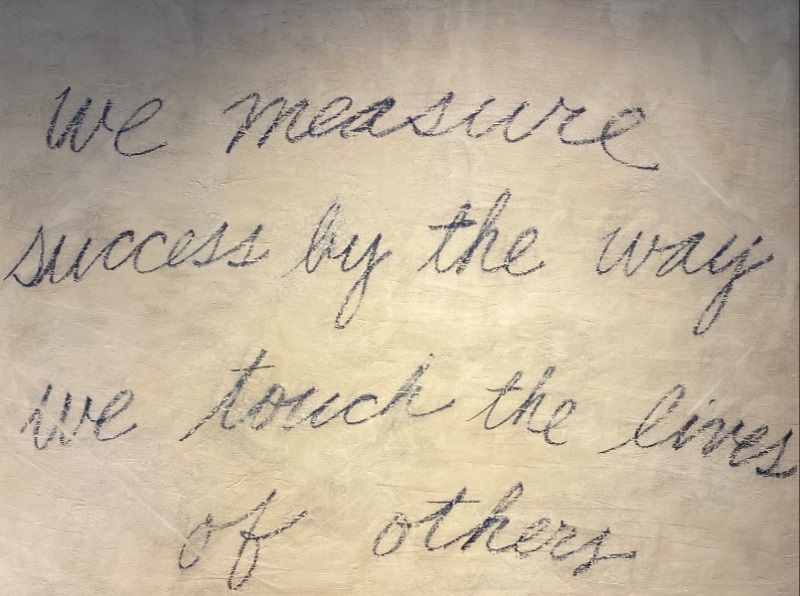Using Leadership Assessment Tools for Development

Related Insights
Raise your hand if you think you’re an above-average driver. Yep, us too. Let’s say 100 people read this post. How many would raise their hand?
Chances are a majority.
But, it’s not possible – right? For there to be that many above-average drivers, mathematically speaking, an equal percentage must be below average. Or, just think about your drive to work this morning.
So, what gives? Simply put, most are not that great at assessing themselves. “Despite the fact that more than 90% of crashes involve human error, three-quarters (73%) of US drivers consider themselves better-than-average drivers.”
You might be thinking: “If I’m not good at assessing my driving skills, what else am I not good at assessing?”
Most are not that great at assessing their leadership abilities either – “80% of people think they are better-than-average leaders.” If you’re sitting there reading this now and you’re in a leadership role, you know the importance of effective leadership. But, if most leaders are not great at assessing themselves, how do you know where to improve your leadership skills?
What are Leadership Assessments?
The best leadership assessment tools provide a common language, build self-awareness, and create pathways for feedback to be delivered. However, these leadership assessment tools can take many forms.
Leadership assessments come in various formats designed to evaluate different aspects of an individual's leadership capabilities:
Leadership Abilities Assessments
These assessments measure leadership competencies such as strategic thinking, decision-making, and people management skills. Leadership abilities assessments are often tailored to test for a specific leadership role or utilized to inform leadership development plans. They help assess current or future leaders within your organization and provide insights into their leadership styles and potential.
Personality Traits Assessments
Assessments that delve into personality traits, emotional intelligence, or cognitive abilities that can influence leadership effectiveness. Some examples are the DISC assessment, the Emergenetics Assessment, or the Myers-Briggs type indicator assessment. These are often self-assessment tools that uncover team members' unique traits. These types of assessments don't tell you whether or not you are a good leader, but rather bring self-awareness to who you are and how you show up in the workplace.
360-Degree Feedback Assessments
Many organizations utilize multi-rater or 360-degree feedback tools, which gather feedback from an individual's peers, direct reports, and superiors to provide a comprehensive view of their leadership strengths and development areas. While asking for candid feedback from those you work with inside your organization can seem unnerving, these assessments uncover invaluable insights into your leadership effectiveness.
Why use Leadership Assessment Tools?
In today's competitive business landscape, investing in leadership assessment tools is a strategic imperative for organizational success. By leveraging these powerful tools, companies can cultivate a pipeline of exceptional current and potential leaders who possess the right skills, traits, and behaviors to drive performance and inspire their teams.
Ultimately, effectively utilizing leadership assessment tools such as leadership abilities assessments, personality tests, or 360 assessments, can empower organizations to unlock the full potential of their leadership talent. This fosters a culture of excellence, innovation, and sustained competitive advantage. In an ever-evolving business world, investing in leadership development is no longer an option but a necessity for long-term success.
Leadership Assessment Best Practices
START A CONVERSATION
Two-thirds of leaders are uncomfortable communicating with their team members. One-third are uncomfortable giving direct feedback they perceive might not be received well. However, often the insights gained from leadership assessments can put words to behaviors, thinking styles, or communication preferences that are often hard to articulate. Utilize the opportunity to share what you've learned with your team members and identify ways you can work better together. For example, suppose you learn you have high analytical preferences. In that case, it may explain why you're always asking for the numbers and trying to understand how something works - it's not because you're being overly critical of their work.
REMEMBER PEOPLE CAN CHANGE
Leadership assessments, especially personality tests, can offer insight into how someone naturally behaves or thinks. It’s their default mode. But, it doesn’t mean they can’t learn, grow, or stretch themselves in other areas. Consider if any results uncover development opportunities for potential or future leaders.
LEAD BY EXAMPLE
If you’re asking your team members to take a leadership skills assessment, go first. This sends the message that even as someone in a leadership position, continuous improvement, and self-development opportunities are important for everyone.
While most may not be great at self-assessing their driving or their leadership skills, it doesn’t mean you shouldn’t keep trying to improve. Regardless of the specific leadership assessment test approach, these tools offer valuable insights that can guide hiring decisions, advise leadership development initiatives, identify leadership potential, inform succession planning, and foster a culture of continuous growth and improvement within your organization.
If you're ready to begin using leadership assessment tools with your team today, Chapman & Co. can help.








